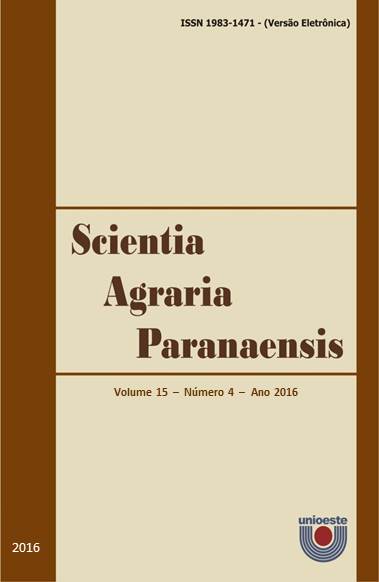Socio economic and technological characterization of milk production in an associative ownership model of Dracena, SP
DOI:
https://doi.org/10.18188/sap.v15i4.12381Keywords:
agricultura familiar, associação, diagnóstico.Abstract
Dairy farming is one of the most important economic chain of the Brazilian agriculture. Apart from the large commercial farms, the small farms, which use low technology, productivity, and profitability, are typical in the city of Dracena, State of São Paulo, Brazil, where the average milk production is 2.7 million liters. Most of the small farms considered as family farms attend producers' associations, such as the Agricultural Producers Association of Dracena (PADR), that offers courses, technical assistance and cooperation, benefiting all members. Therefore, this study aimed the socio-economic and technological characterization of milk producers in the city of Dracena as well the determination of the main problems that characterize the association’s production system. As method, were used statistical censuses and a Participatory Rural Appraisal conducted by semi-structured interviews and external and internal analysis of production through the SWOT matrix. The main problem appointed by milk producers was the instability of the milk’s price, the higher food expenses, and the need for a greater capitalization because of the necessity of construction and development of strategies for the production system.
Downloads
Published
How to Cite
Issue
Section
License
Aviso de Direito Autoral Creative Commons
Política para Periódicos de Acesso Livre
Autores que publicam nesta revista concordam com os seguintes termos:
1. Autores mantém os direitos autorais e concedem à revista o direito de primeira publicação, com o trabalho simultaneamente licenciado sob a Licença Creative Commons Attribution que permite o compartilhamento do trabalho com reconhecimento da autoria e publicação inicial nesta revista.2. Autores têm autorização para assumir contratos adicionais separadamente, para distribuição não-exclusiva da versão do trabalho publicada nesta revista (ex.: publicar em repositório institucional ou como capítulo de livro), com reconhecimento de autoria e publicação inicial nesta revista.
3. Autores têm permissão e são estimulados a publicar e distribuir seu trabalho online (ex.: em repositórios institucionais ou na sua página pessoal) a qualquer ponto antes ou durante o processo editorial, já que isso pode gerar alterações produtivas, bem como aumentar o impacto e a citação do trabalho publicado (Veja O Efeito do Acesso Livre).
Licença Creative Commons
Esta obra está licenciada com uma Licença Creative Commons Atribuição-NãoComercial-CompartilhaIgual 4.0 Internacional, o que permite compartilhar, copiar, distribuir, exibir, reproduzir, a totalidade ou partes desde que não tenha objetivo comercial e sejam citados os autores e a fonte.


